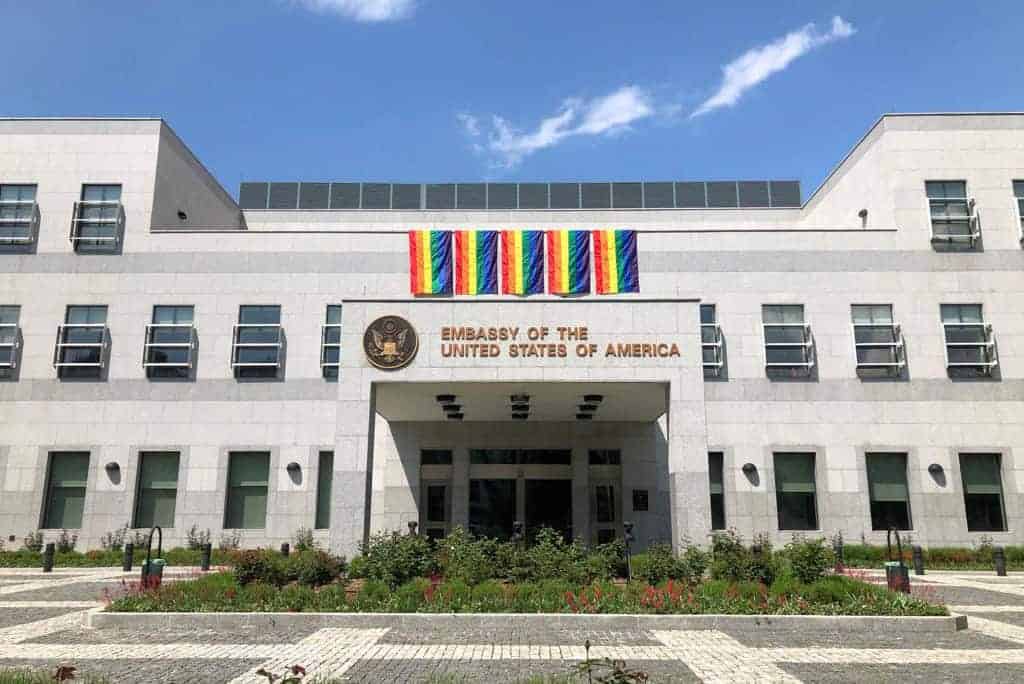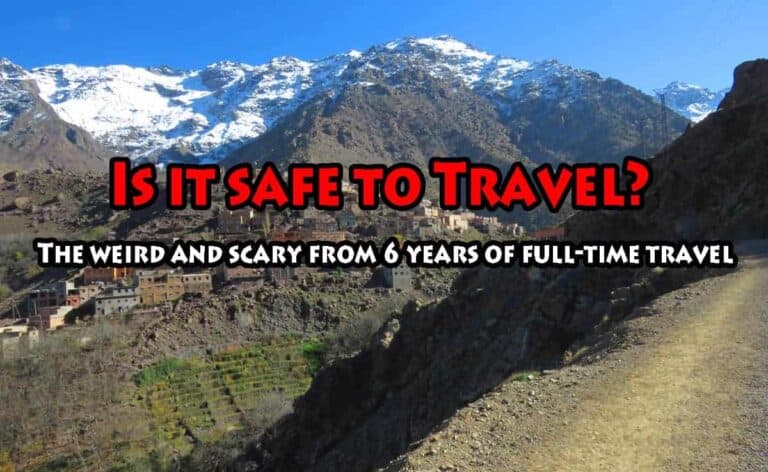
I’ve seen it countless times when travelling: people losing their passports, people getting robbed of all their possessions, or – god forbid – people getting into some kind of legal or medical problem while overseas. What do you do? Who do you call when you’re stuck all by yourself in a foreign country?
If there is anything I always advise people to do prior to going to a new destination, it is to look up your country’s closest Embassy or Consulate.
We use this Worldwide Embassies Finder
We’ve had quite a few experiences with both embassies and consulates during our 6 years of full-time travel. This post covers the differences between the two and the services you can expect from each.
Embassy
An Embassy is a country’s diplomatic base in another country. They’re almost always located in the capital of that country and usually occupy large and prestigious pieces of property (part of that is for the image of political power, part of it is that you’ll often have a lot of people working in an embassy). The embassy is headed by an ambassador and his job is to fix issues or engage in negotiations. Most of an embassy’s functions will involve policy and communications between governments.
What do Embassies do for you as a traveller? They’ll help you if you need a new passport or require legal or medical services. They’ll give you financial assistance, documentation, or help you with any kind of information you require. They’ll assist you if there’s a local emergency and will get involved if there are child abduction or custodial issues. In short, they’ll help you with almost any kind of emergency service you might need while overseas.
An example. In early 2020 we were stuck in lockdown in Spain because of the pandemic. We had registered with the Canadian Embassy in Madrid and they proved very helpful: keeping us up to date on the latest information and restrictions, advising us on repatriation flights back to Canada, and offering to provide any documentation required for movement to the airport for our flight home.
A few year’s ago we were invited to a party at the Canadian embassy in Kyiv (Ukraine). That’s me with Canadian Ambassador Roman Waschuk.
Consulate
Consulates are like satellite offices for the embassies: they’re located in other cities (not the capital) and are usually much smaller than embassies. Example: The United States has an embassy in Mexico City but also an additional 9 consulates around Mexico.
Consulates are less about diplomacy and more about providing services to citizens and foreigners. For example: when we applied for our Spanish long term Visa we had to do it at a Spanish consulate in Montreal.
What do Consulates do for you as a traveller? A consulate will offer some of the same services as an embassy. A consulate will, for example, help you get a new passport if you’ve had yours lost or stolen. Note that it might take a few days longer than doing it at the embassy (because the paperwork usually has to be forwarded to the embassy) but at least you won’t have to travel halfway across a country to get a new passport.
Whether an Embassy or Consulate, you should always look up the closest one and have the contact information in your wallet. Remember that both embassies and consulates are legally a home away from home, a place that you can turn to for help when visiting a foreign country. There’s nothing more important when travelling.
Have you ever had to turn to an Embassy or Consulate when travelling?




Leave a Reply